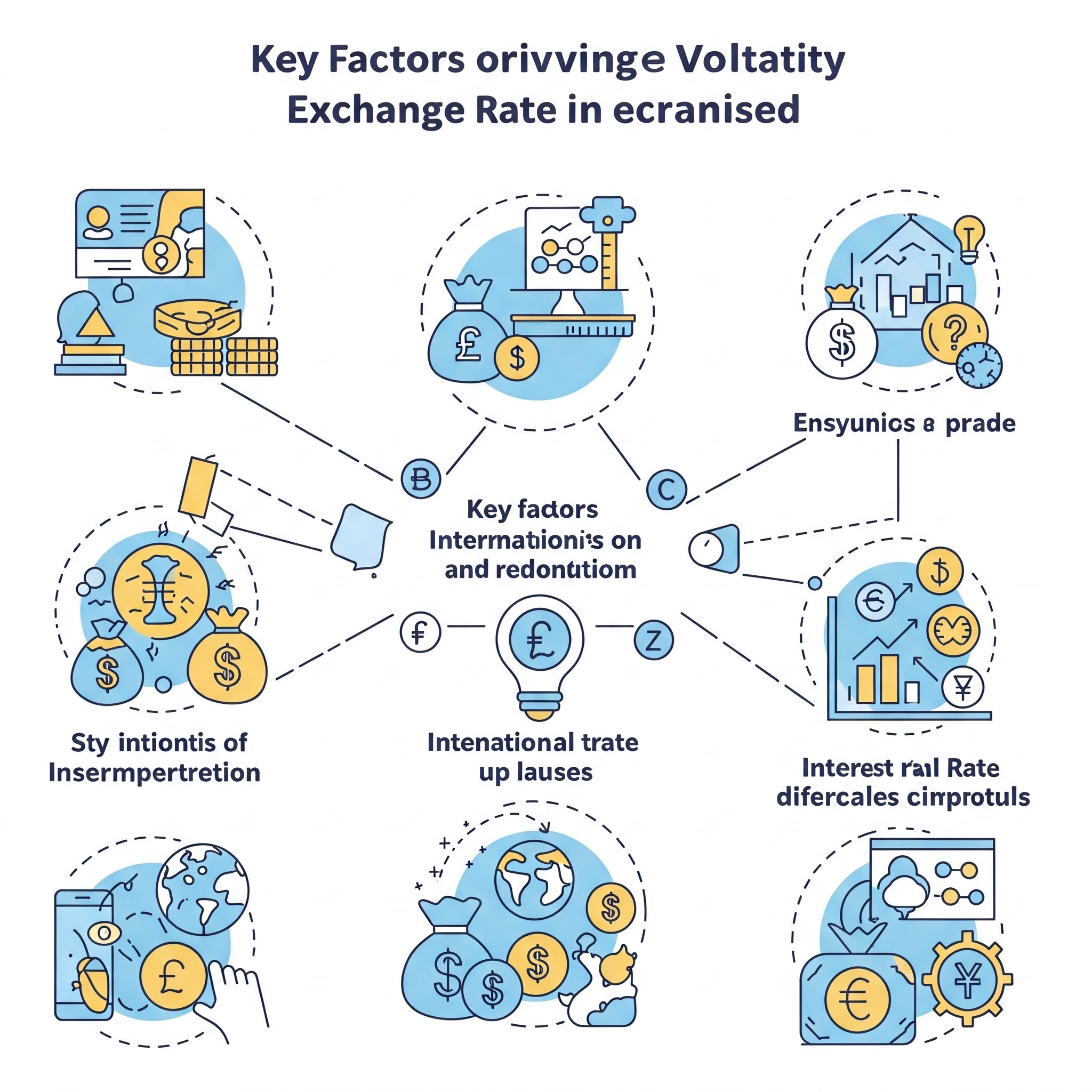Understanding Exchange Rate Volatility: 5 Key Factors That Affect Currency Fluctuations
Exchange rate volatility is a crucial aspect of international finance that can have far-reaching consequences for economies around the world. As businesses and investors increasingly depend on foreign currencies to conduct trade and manage investments, understanding the factors influencing exchange rate fluctuations becomes vital. In this article, we will explore the important factors that contribute to exchange rate volatility, supported by statistical data and real-world examples.
What Is Exchange Rate Volatility?
Exchange rate volatility refers to the fluctuations in the value of one currency in relation to another over a specific period. High volatility can lead to uncertainty and risks in international trade and investments, affecting various stakeholders, from businesses to governments. According to the International Monetary Fund (IMF), exchange rate volatility is a significant concern for emerging market economies, where excessive volatility can destabilize financial systems.
Primary Factors Influencing Exchange Rate Volatility
1. Economic Indicators
Economic indicators such as Gross Domestic Product (GDP), unemployment rates, and inflation play a vital role in determining currency values. For instance, strong GDP growth typically leads to an appreciation of the currency. A report by the World Bank in 2022 indicated that countries with a consistent GDP growth rate of over 3% often experience lower currency volatility.
2. Interest Rates
Interest rates significantly impact exchange rates as they influence investors' decisions on where to allocate their capital. Generally, higher interest rates offer lenders in an economy a higher return relative to other countries. For example, after the Federal Reserve raised interest rates three times in 2022, the U.S. dollar appreciated significantly against several major currencies, including the Euro and Japanese yen.
3. Political Stability and Economic Performance
Political stability plays a crucial role in investor confidence and, consequently, in exchange rate stability. Countries that are viewed as politically stable tend to attract foreign investment, leading to a stronger currency. For instance, during the political unrest in Venezuela, the Bolivar experienced extreme volatility, declining by over 90% against the U.S. dollar in 2021.
4. Speculation and Market Sentiment
Speculation can lead to short-term volatility in exchange rates. Traders often react to news and events, buying or selling currencies based on their expectations. According to Bloomberg, a major announcement regarding trade tariffs can lead to significant currency fluctuations. For example, when President Trump announced trade tariffs on China in 2019, the Chinese Yuan depreciated by over 7% against the U.S. dollar within a few weeks.
5. Global Events and Crises
Natural disasters, economic crises, or geopolitical tensions can cause sudden changes in currency values. For example, the COVID-19 pandemic caused unprecedented volatility in exchange rates. The Australian dollar, which is often seen as a risk currency, fell significantly during the initial outbreak but quickly rebounded as recovery efforts took shape.
Conclusion
Understanding exchange rate volatility is essential for investors, businesses, and policymakers alike. By recognizing the key factors influencing currency fluctuations—economic indicators, interest rates, political stability, speculation, and global events—stakeholders can make more informed decisions. As the world becomes increasingly interconnected, the ability to navigate exchange rate volatility will be crucial for maintaining economic stability and fostering international trade.
Related Tags: #ExchangeRateVolatility #CurrencyFluctuations #Investing #Finance #GlobalEconomy
Categories: Finance, Investing, Economics
Call to Action:
Stay informed about global market trends and exchange rate fluctuations. Subscribe to our newsletter for real-time updates and expert analysis!

답글 남기기